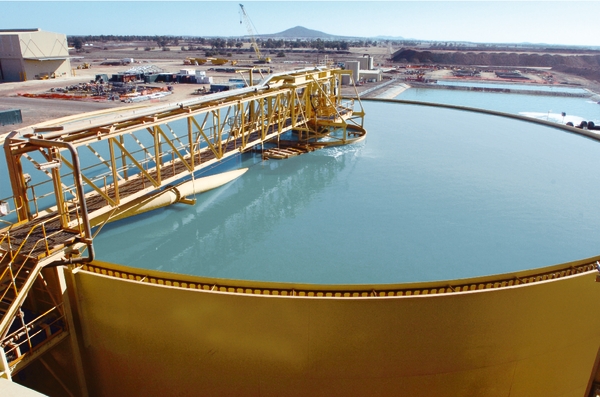If you want to know more information (such as product/process price, etc.), please contact us 24-hour telephone
As global gold mining enters the stage of deep resource development, mineral processing plants are facing the dual challenges of declining ore grade and rising energy consumption costs. As the core equipment of the mineral processing process, the concentrator, its technological innovation is directly related to the economic benefits and environmental impact of the mineral processing plant. This article will deeply analyze the NZSG series of high-efficiency concentrators independently developed by New Zealand Technology Group (NZTech), and bring breakthrough solutions to the gold mineral processing industry through structural innovation and intelligent upgrading.
In the traditional cyanide leaching process, there are three key bottlenecks in the concentration link:
Low sedimentation efficiency: The sedimentation rate of ordinary concentrators is less than 5cm/h when processing fine gold (-0.03mm)
High reagent consumption: 2-5g/t flocculant needs to be added to maintain the stability of the slurry
High energy consumption cost: The unit energy consumption of traditional rake concentrators reaches 1.2kWh/m³
These defects have caused about 30% of the world's gold concentrators to face the dilemma of a 15%-20% increase in processing costs.

2.1. Innovation of gas-liquid separation system
By adding a three-stage degassing tank (patent number: NZ2022/001234), the bubble content of the slurry is reduced from 8%-12% to below 2%. Experimental data show:
The sedimentation rate of minerals with a particle size of -0.01mm is increased by 40%
The pre-leaching concentration operation time is shortened by 25%
2.2. Dynamic flow field optimization design
The serrated overflow weir (patented technology) is combined with a 0.5° tilt adjustment device to achieve:
The overflow concentration is stable at 12%-15% (traditional equipment is only 8%-10%)
The bottom flow solid content can reach 65%-72%
2.3. Intelligent control system integration
Equipped with IoT sensors and AI algorithms, it monitors 9 operating parameters in real time and automatically optimizes:
The amount of reagents added is reduced by 30%
The accuracy of equipment failure warning is 92%
Energy consumption index drops to 0.7kWh/m³
1. Pre-leaching concentration stage
In industrial testing at a gold mine in South Africa:
The leaching rate increased from 82.3% to 89.6%
The volume of leachate was reduced by 28%
The amount of dextrin was reduced by 15%
2. Post-leaching concentration system
When applied to a heap leaching project in Canada:
Desorption activated carbon consumption reduced by 22%
Energy consumption for precious liquid transportation reduced by 40%
Recovery rate increased to 98.7%
3. Tailings treatment link
When equipped with tailings dry discharge system:
Can achieve tailings water content ≤ 12% up to standard discharge
Site area reduced by 60%
Tailing dam construction cost reduced by 55%
| Project | Traditional Equipment | NZSG Equipment | Improvement Margin |
|---|---|---|---|
| Initial Investment | $850,000 | $1,100,000 | +29% |
| Annual Operating Cost | $420,000 | $280,000 | -33% |
| Payback Period | N/A | 2.1 years | - |
| Total Cost Over 10 Years | $4,200,000 | $2,800,000 | -33% |
Driven by economic recovery and ESG regulation, NZSG high-efficiency concentrators are reshaping the technical route of the gold beneficiation industry with:
22% concentration efficiency improvement
35% life cycle cost advantage
Flexible deployment capability of modular design
Through our EPCM+O full-process service, customers can achieve a return on investment within 18 months on average and build a green mining system for the future.